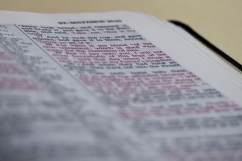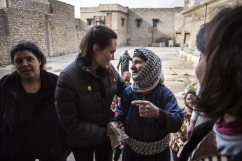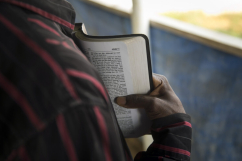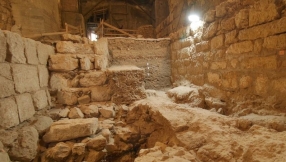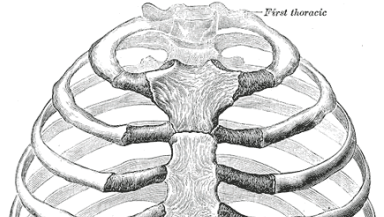
The Bible is not for the squeamish, and particularly some of the more eventful books of the Old Testament. One of these is 2 Samuel, which tells the story of the beginning of King David's reign and in which large numbers of people came to a sticky end.
It's usually rendered "belly" or "stomach" in modern translations, but the writer has a stylistic quirk: people aren't just stabbed to death, they are stabbed "under the fifth rib" (KJV).
1. 2 Samuel 2 tells the story of David's battle with the house of his predecessor King Saul, waged between their rival generals, Joab for David and Abner for Ishbosheth. Joab's army overcomes Abner's and Abner runs for his life. One of Joab's brothers, Asahel, who was "as swift as a gazelle of the plains", chases after him and in spite of Abner's pleas for him to turn aside for his own safety, catches him up and pays the price: "Abner with the hinder end of the spear smote him under the fifth rib, that the spear came out behind him" (23). We have to assume that the butt of the spear was sharp, as well as the business end; either way, it's pretty final.
2. 2 Samuel 3 is the next installment: Abner has had enough of Ishbosheth and tries to make peace with David. In Joab's absence, he is warmly received – this is David's chance to end the bloodshed and bring the warring Israelites together. However, when Joab returns from raiding and finds that David has let Abner get away, he's incensed. He sends messengers to bring him back, and the unsuspecting Abner returns. In an act of cold-blooded revenge for his brother's death: "Joab took him aside in the gate to speak with him quietly, and smote him there under the fifth rib, that he died, for the blood of Asahel his brother" (27).
3. 2 Samuel 4 tells of the fall of Ishbosheth. With the loss of his general Abner, his resistance to the triumphant and popular David is nearly at an end. Two of his captains, Baanah and Rechab, decide to take matters into their own hands; they sneak into his house at midday while he's asleep and "smote him under the fifth rib: and Rechab and Baanah his brother escaped" (6). The author adds with some relish that they "smote him, and slew him, and beheaded him". It didn't end well for them, however: David didn't approve, and had them both executed.
4. 2 Samuel 20 completes the story of the rebellion against David by his son Absalom. It was all pretty awful, ending in the young man's strange death (he was riding under a tree and his head got stuck in it; Joab stabbed him with a javelin). David offered Joab's job to Absalom's general Amasa, which couldn't have pleased him. Then when David had to put down another rebellion, Amasa was too slow gathering the troops – possibly deliberately. Seizing his moment, Joab went to meet him and "grasped Amasa's beard to kiss him". In his left hand, concealed under his tunic, was a sword, with which he "smote him therewith in the fifth rib, and shed out his bowels to the ground, and struck him not again; and he died" (10).
So why the fifth rib? One possible explanation is that it's where the heart actually touches the chest wall. So if you really want to finish someone off efficiently, that's the best place to aim for. Another explanation is that it's not intended to be very anatomically specific, which accounts for the translation as "stomach".
These are great stories, if you like adventure stories with lots happening – and judging by the popularity of action/adventure films, most of us do. It's not very often that we hear sermons about them, though. Maybe it's because we're a bit embarrassed that these bloody events are recorded in the Bible, and we aren't quite sure what to say about them – and no one can read about stabbings of any kind without thinking about some of the tragic events that are reported in our media all the time. No one wants to glorify these texts or make light of them. But maybe learning more about these stories and thinking about what they have to say today might help the Church connect with a new demographic. The Bible is gritty, real and shocking – like the world we live in – and we need to learn to use all of it to speak to the world today.
Follow @RevMarkWoods on Twitter.










